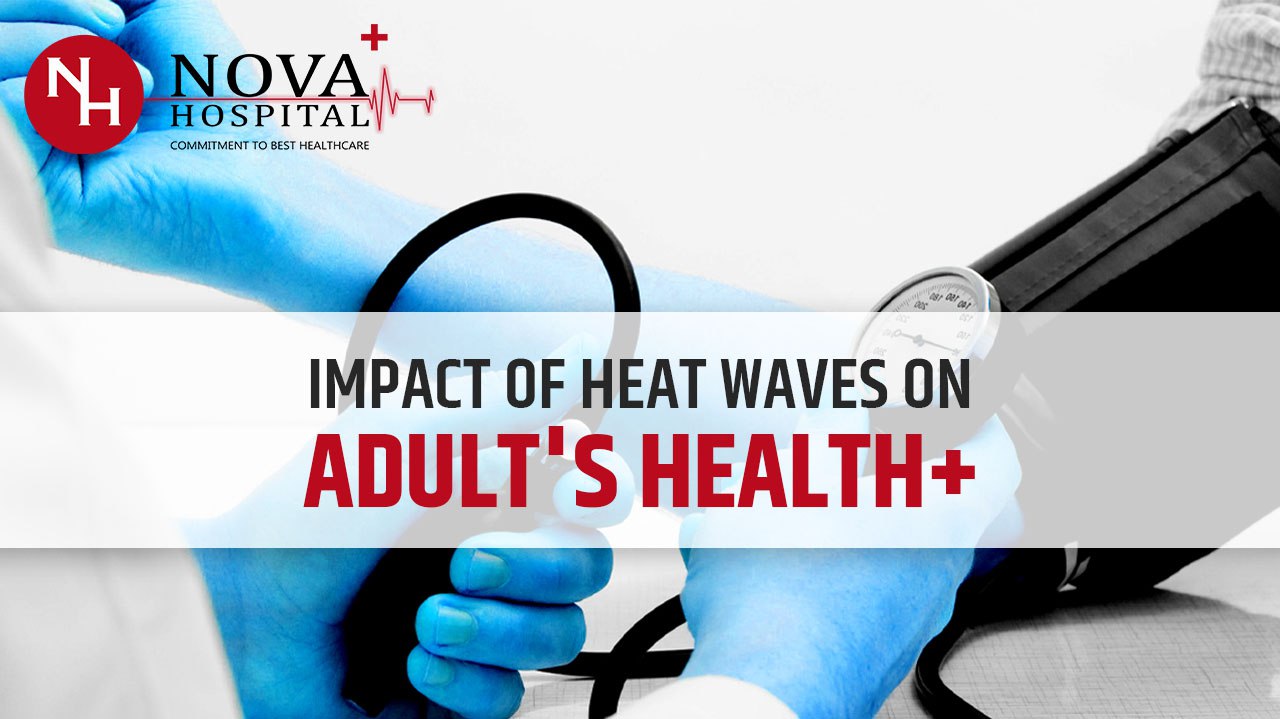Impact of Heat Waves on Adult’s Health
Heat waves are a frequent meteorological occurrence that can negatively affect people’s health. The dangers of dehydration, heat exhaustion, and heat stroke increase as the temperature rises.
Heat waves can have negative consequences on mental health as well as physical health, including stress, anxiety, and sleep disruption. This is especially true for elderly people, those who suffer from chronic conditions, and people who don’t have easy access to amenities like air conditioning. Understanding the consequences of heat waves on health and taking action to prevent and lessen their effects are more crucial than ever as the world’s temperatures continue to increase.
This article will examine how heat waves affect adult health, risk factors that make people more susceptible, and preventative measures.
Come along as we explore the hot subject of heat waves and their effects on human health.
Effects of Heat Waves on Health
Heat waves may have a serious negative influence on a person’s physical and mental health.
Heat exhaustion, heat stroke, and dehydration are some of the physical symptoms of heat waves. Dehydration can result in headaches, exhaustion, and muscular cramps when the body loses more fluid than it takes in.
A lesser kind of heat stroke known as heat exhaustion can result in excessive perspiration, weakness, and lightheadedness.
On the other side, heat stroke is a potentially fatal disorder that develops when the body’s temperature-regulating mechanism malfunctions. High body temperature, a fast pulse, and disorientation are symptoms.
Heat waves can have negative impacts on mental health in addition to physical ones. Long-term exposure to high temperatures can disrupt sleep, tension, and anxiety. This may result in agitation and restlessness, which can harm both professional and interpersonal relationships. Another prevalent mental health issue brought on by extended exposure to heat waves is depression.
People with chronic conditions and older persons are more susceptible to the impacts of heat waves. This is because chronic conditions can make it difficult for the body to deal with high temperatures, and older persons may have trouble controlling their body temperature. Furthermore, socioeconomic health variables like poverty and education might make people more susceptible to heat wave impacts.
People who are less educated or have lower incomes can have less access to air conditioning and other amenities that could keep them cool during heat waves.
It is crucial to take personal measures like drinking enough water, dressing appropriately, and finding shade to avoid or lessen the negative impacts of heat waves on health. Public health initiatives, heat warning systems, and cooling centers are examples of community-level actions that can assist avoid and lessen the effects of heat waves.
Prevention and Mitigation Strategies
Strategies for prevention and mitigation are crucial for minimizing the harm that heat waves have to people’s health.
Individual safety and health can be maintained during heat waves with the use of personal safeguards. These safety measures include:
- Staying hydrated by drinking plenty of water and avoiding alcohol and caffeine
- Wearing lightweight, light-colored, and loose-fitting clothing
- Seeking shade or air-conditioned environments when possible
- Taking breaks from outdoor activities and limiting exposure to the sun
- Taking cool showers or baths to lower body temperature
Interventions at the community level can also aid in preventing and reducing the negative health impacts of heat waves. Among these interventions are:
- Cooling stations: Establishing cooling stations in high-risk areas can provide individuals with a place to escape the heat and stay cool.
- Public health education: Providing public health education on the effects of heat waves and how to stay safe can help individuals take the necessary precautions to stay healthy during heat waves.
- Heat warning systems: Implementing heat warning systems can alert individuals and communities to the onset of heat waves and provide information on how to stay safe.
- Emergency response plans: Developing emergency response plans for heat waves can help ensure that communities are prepared to respond to heat-related health emergencies.
Conclusion
In conclusion, heat waves can seriously harm a person’s physical and mental health. In order to avoid and lessen the consequences of heat waves, it is essential to understand their effects as well as the risk factors that make people more vulnerable. Social determinants of health like money and education can make people more sensitive to the impacts of heat waves, and older people and those with chronic conditions are particularly vulnerable.
People may keep themselves safe and healthy during heat waves by taking personal precautions including drinking enough water, dressing appropriately, and finding shade. Public health initiatives, heat warning systems, and cooling centers are examples of community-level actions that can assist avoid and lessen the effects of heat waves.
The effects of heat waves on health must be addressed in a proactive manner by individuals, communities, and governments. We can contribute to maintaining the health and safety of our communities during heat waves by taking the required measures and putting into place community-level actions. We must continue to be alert and aggressive in our efforts to prevent and lessen the negative effects of heat waves on health as the world’s temperatures rise.

